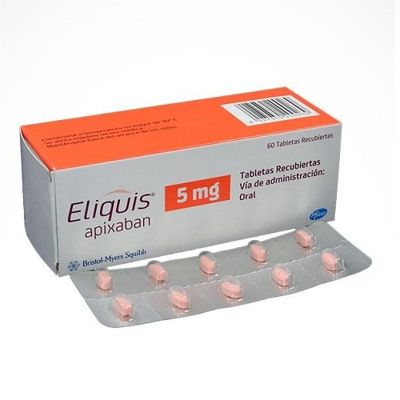v-care pharmacy
Member since: 2024Unlock the secrets of Eliquis, the widely prescribed blood thinner, with our comprehensive guide to safety. Here's everything you need to know to navigate Eliquis with confidence:
Understanding Eliquis: Learn about Eliquis, its mechanism of action, and why it's prescribed. Eliquis, also known as apixaban, is an anticoagulant medication used to prevent blood clots in individuals with conditions such as atrial fibrillation, deep vein thrombosis, and pulmonary embolism. By inhibiting certain clotting factors in the blood, Eliquis helps reduce the risk of dangerous clot formation.
Safety Profile: Explore the safety profile of Eliquis compared to other blood thinners. Eliquis has been extensively studied in clinical trials and real-world settings, demonstrating a favorable safety profile with lower rates of bleeding complications compared to older anticoagulants. Its predictable dosing and minimal interactions with food and other medications make it a preferred choice for many patients and healthcare providers.
Dosage and Administration: Understand the recommended dosage and administration guidelines for Eliquis. The typical dose for most indications is 5 mg taken orally twice daily. However, dosage adjustments may be necessary based on individual factors such as age, weight, kidney function, and concomitant medications. It's essential to follow your healthcare provider's instructions carefully to ensure optimal treatment outcomes.
Monitoring and Follow-up: Learn about the importance of monitoring and follow-up while taking Eliquis. Unlike older anticoagulants like warfarin, Eliquis does not require routine blood monitoring. However, regular follow-up appointments with your healthcare provider are essential to monitor your response to treatment, assess for potential side effects, and make any necessary adjustments to your medication regimen.
Bleeding Risks and Precautions: Be aware of the potential risks of bleeding while taking Eliquis. Although Eliquis has a lower risk of bleeding compared to other anticoagulants, it's essential to take precautions to minimize your risk. This includes avoiding activities that increase the risk of injury or bleeding, such as contact sports or certain medications that can interact with Eliquis.
Emergency Situations: Know what to do in case of emergencies while taking Eliquis. In the event of a severe bleeding episode or if you require emergency surgery, it's crucial to inform healthcare providers that you are taking Eliquis. They can provide guidance on managing bleeding complications and may administer specific antidotes if necessary.
By demystifying Eliquis and understanding its safety profile, dosage guidelines, monitoring requirements, and potential risks, you can use this medication effectively and safely to manage your condition and reduce the risk of blood clots. As always, consult with your healthcare provider for personalized guidance and recommendations regarding Eliquis use.




